Important Dates
Papers submission due:
Oct. 20, 2022
Nov. 15, 2022
Nov. 15, 2022
Notification of acceptance:
Nov. 20, 2022
Dec. 5, 2022
Dec. 5, 2022
Registration:
Dec. 6, 2022
Dec. 12, 2022
Dec. 12, 2022
Conference Date:
Dec. 16-18, 2022
Social Media
Workshop 1
+ 查看更多
Workshop title: A3GPM: Architecture-Aware Approximate Graph Pattern Mining
Workshop title: A3GPM: Architecture-Aware Approximate Graph Pattern Mining
Chair: Assoc. Prof. Ruini Xue, University of Electronic Science and Technology of China
Chair: Assoc. Prof. Ruini Xue, University of Electronic Science and Technology of China
Summary:
Graph computing is playing an important role in recent big data
analysis as more and more emerging applications have to model irregular,
complicated data as graphs. As one of the most widely adopted graph processing approaches,
graph pattern mining (GPM) seeks for subgraphs (known as the “pattern”) identical with the query
graph structure expected by the users from the graph data.
Typical GPM use-cases include motif counting, frequent subgraph mining (FSM) and clique listing.
Given the huge computational workload and requirements in such application scenarios,
approximate GPM algorithms and frameworks are unfolding and growing in a rapid pace.
Meanwhile, the emergence of parallel architectures and hardware,
in the form of multi-core/many-core processors, GPU, NVM, and distributed platforms have
provided new approaches for large-scale mining. This trend has dramatically broadened the
scope of graph pattern mining research,
and is enabling researchers to tackle new challenges.
The aim of this workshop is to bring together the research accomplishments provided by researchers from academia and the industry to present, discuss and exchange ideas, results, work in progress and experiences in the area of architecture-aware approximate graph pattern mining. In particular, while we retain our focus on novel approximate graph pattern mining approaches, we also welcome work that exploring accurate mining and interdisciplinary researchers to showcase innovative research that leverage the emerging trends in graph pattern mining.
The aim of this workshop is to bring together the research accomplishments provided by researchers from academia and the industry to present, discuss and exchange ideas, results, work in progress and experiences in the area of architecture-aware approximate graph pattern mining. In particular, while we retain our focus on novel approximate graph pattern mining approaches, we also welcome work that exploring accurate mining and interdisciplinary researchers to showcase innovative research that leverage the emerging trends in graph pattern mining.
Keywords: graph pattern mining, approximate pattern counting, distributed systems,
Ruini Xue, received his master
and Ph.D. degrees in computer science and technology
from Tsinghua University. He worked as an associated professor at the School
of Computer Science and Engineering, University of Electronic Science and
Technology of China. His research interests include graph computing, blockchain,
and distributed database. He participated in the National Natural Science
Foundation and Chinese National Programs for High Technology Research and
Development, etc. He published more than 30 papers and about 20 patents have
been granted.
Workshop 2
+ 查看更多
Workshop title: Experience Enhanced Intelligence to IoT
Workshop title: Experience Enhanced Intelligence to IoT
Chair: Prof. Haoxi Zhang, Chengdu University of Information Technology
Chair: Prof. Haoxi Zhang, Chengdu University of Information Technology
Summary:
The Internet of Things (IoT) has gained
significant attention from industry as well as academia during the past decade.
The main reason behind this interest is the capabilities of the IoT for seamlessly
integrating classical networks and networked objects, and hence allows people to create an
intelligent environment based on this powerful integration. However,
how to extract useful information from data past produced by IoT, then transform such information
into knowledge and facilitate standard knowledge reuse among different Things,
are still open issues to be addressed.
The Experience Enhanced Intelligence to IoT workshop is devoted to the experience-based methods addressing knowledge acquisition, representation, inference, and reusing problems and their application to IoT. We want to offer an opportunity for researchers and practitioners to identify new promising research directions as well as to publish recent advances in this area. The scope of this workshop includes, but is not limited to the following topics:Theoretical framework for experience-based knowledge representation methods
Experience-based knowledge extraction algorithms for IoT
Dealing with Big Data and small data sets
Subsampling and feature selection in multiple model machine learning
Diversity, accuracy, interpretability, and stability issues
IoT-oriented methods in prediction and classification
Reusing, evolving, and online learning for IoT
Inference and reasoning using experience-based methods
Implementations of experience-based learning algorithms for IoT
Applications of intelligent IoT methods in medicine, security, industry, engineering, etc.
The Experience Enhanced Intelligence to IoT workshop is devoted to the experience-based methods addressing knowledge acquisition, representation, inference, and reusing problems and their application to IoT. We want to offer an opportunity for researchers and practitioners to identify new promising research directions as well as to publish recent advances in this area. The scope of this workshop includes, but is not limited to the following topics:
Keywords: Internet of Things; machine learning; experience-based knowledge extraction; signal processing; Intelligent information systems; data mining
Prof. Zhang is an Associate Professor from the Chengdu University of Information Technology,
Chengdu, China. He received his Ph.D. degree in Knowledge Engineering from the University of
Newcastle in 2013, and the master’s degree in Software Engineering from the University of
Electronic Science and Technology of China. His research interests focus on experience-oriented
intelligent systems, knowledge engineering, Internet of Things, and Deep Learning.
He has published more than 30 reputed journal and conference papers.
Workshop 3
+ 查看更多
Workshop title: AML : Workshop on Accelerated Machine Learning
Workshop title: AML : Workshop on Accelerated Machine Learning
Chair: Prof. Yaobin Wang, Southwest University of Science and Technology
Chair: Prof. Yaobin Wang, Southwest University of Science and Technology
Summary:
The remarkable performance achieved in a variety of application areas
(natural language processing, computer vision, games, etc.) has led to the emergence
of heterogeneous architectures to accelerate machine learning workloads.
In parallel, production deployment, model complexity and diversity pushed for higher
productivity systems, more powerful programming abstractions, software and system
architectures, dedicated runtime systems and numerical libraries,
deployment and analysis tools. Deep learning models are generally memory and computationally
intensive, for both training and inference. Accelerating these operations has obvious
advantages, first by reducing the energy consumption (e.g. in data centers), and secondly,
making these models usable on smaller devices at the edge of the Internet. In addition,
while convolutional neural networks have motivated much of this effort, numerous applications
and models involve a wider variety of operations, network architectures, and data processing.
These applications and models permanently challenge computer architecture, the system stack,
and programming abstractions. The high level of interest in these areas calls for a dedicated
forum to discuss emerging acceleration techniques and computation paradigms for machine
learning algorithms, as well as the applications of machine learning to the construction
of such systems.
The workshop brings together researchers and practitioners working on computing systems for machine learning, and using machine learning to build better computing systems. It also reaches out to a wider community interested in this rapidly growing area, to raise awareness of the existing efforts, to foster collaboration and the free exchange of ideas.
The workshop brings together researchers and practitioners working on computing systems for machine learning, and using machine learning to build better computing systems. It also reaches out to a wider community interested in this rapidly growing area, to raise awareness of the existing efforts, to foster collaboration and the free exchange of ideas.
Keywords: computing systems, DNN accelerators, machine learning workloads
Yaobin Wang, PhD, professor, CCF Senior Member. He works in the School of Computer
Science and Technology, Southwest University of Science and Technology (SWUST),
China, and worked in the Department of Electrical and Computer Engineering at
Northwestern University, USA from Sep. 2019 to Sep. 2020. His research
interests include AI accelerators, computer architecture and parallel computing.
Workshop 4
+ 查看更多
Workshop title: Theories and Methods of Business Intelligence in Social Network Sites
Workshop title: Theories and Methods of Business Intelligence in Social Network Sites
Chair: Assoc. Prof. Shixi Liu, Chuzhou University
Chair: Assoc. Prof. Shixi Liu, Chuzhou University
Summary:
Social media such as forums, microblogs, wechat and content commerce provide
people with an interactive platform to actively share opinions, insights,
experiences and creativity, forming a large number of user generated content and social network
relationships, and generating social media big data. Social media big data comes directly
from stakeholders outside the organization, which contains a large amount of information and
knowledge of great value to enterprises and government decisions, including opinion leaders,
potential customers, market reactions, online public opinion, etc. In the uncertain environment
of "unprecedented changes in a century", social media business intelligence has important
strategic value for organizations to acquire external knowledge, improve market insight and
improve decision-making level. It is an emerging frontier of business intelligence research
and has received high attention from domestic and foreign academic circles and industries.
The aim of this workshop is to bring together the research accomplishments provided by researchers from academia and the industry to present, discuss and exchange ideas, results, work in progress and experiences in the area of theories and methods of business intelligence in social media context. In particular, while we retain our focus on novel social media mining approaches, social trust computing, we also welcome work that exploring machine learning and interdisciplinary researchers to showcase innovative research that leverage the emerging trends in business intelligence.
The aim of this workshop is to bring together the research accomplishments provided by researchers from academia and the industry to present, discuss and exchange ideas, results, work in progress and experiences in the area of theories and methods of business intelligence in social media context. In particular, while we retain our focus on novel social media mining approaches, social trust computing, we also welcome work that exploring machine learning and interdisciplinary researchers to showcase innovative research that leverage the emerging trends in business intelligence.
Keywords: Social media mining, online social networks, business intelligence,
Shixi Liu received the B.S. and M.S. degrees in School of Computer
Science and Engineering from the Anhui University of Science and
Technology, in 2004 and 2007, respectively, and the Ph.D. degree in
School of Management from Hefei University of Technology, Hefei, China,
in 2016. Since 2017, he has been an Associate Professor with the School
of Informatics, Chuzhou University. From 2019 to 2020, he was the
Academic Visitor with School of Informatics, University of Leicester,
Leicester, UK. His research interests include machine learning,
social network analysis, and social trust computing. He has published
in such journals as Information Sciences, Knowledge-Based
Systems, and IEEE Transactions on computational social systems.
Workshop 5
+ 查看更多
Workshop title: Big Data and Artificial Intelligence Technology in Power Systems
Workshop title: Big Data and Artificial Intelligence Technology in Power Systems
Chair: Assoc. Prof. Tao Wang, Xihua University
Chair: Assoc. Prof. Tao Wang, Xihua University
Summary:
Artificial intelligence is one of the keys to future technological progress.
The development of artificial intelligence was developed as a national strategy
in China. The power system is designated as one of the main application fields of
artificial intelligence. The new generation of artificial intelligence technology
presents the characteristics of deep learning, cross-border integration,
human-machine collaboration, group intelligence openness, autonomous control.
It shows strong processing capacity in perceptual intelligence, computing intelligence
and cognitive intelligence. Combined the artificial intelligence technology with power
systems will help promote major changes in power productions and utilization modes.
The integration of cloud computing, big data, the Internet of Things, mobile Internet
and the new generation of artificial intelligence technology will become the basic supporting
technology for the development of the intelligent, interactive, safe and controllable new
generation of power systems. This will help improve their reliability and flexibility, and
promote the quality and efficiency reform of the power industry. At the same time,
the development of artificial intelligence also provides a powerful tool for power system
planning and design, simulation, coordinated control, prediction and estimation, diagnosis
and identification and other problems.
The aim of this workshop is to bring together the research accomplishments provided by researchers from academia and the industry to present, discuss and exchange ideas, results, work in progress and experiences in the application of artificial intelligence technology in power systems. We look forward to your discussing new theories, technologies and applications in related fields, so as to jointly promote the intelligent development of power systems.
The aim of this workshop is to bring together the research accomplishments provided by researchers from academia and the industry to present, discuss and exchange ideas, results, work in progress and experiences in the application of artificial intelligence technology in power systems. We look forward to your discussing new theories, technologies and applications in related fields, so as to jointly promote the intelligent development of power systems.
Keywords: artificial intelligence, big data, power system,
Tao Wang received the Ph.D. degree in electrical engineering at the Southwest
Jiaotong University, Chengdu, China, in 2016. She worked as a visit student in the Computer
Science and Artificial Intelligence, University of Sevilla, Sevilla, Spain, during 18/11/2013
to 18/11/2014. She was a lecturer in the Xihua University, China (2017-2019). She is currently
an associate professor in the School of Electrical Engineering and Electronic Information at
the Xihua University since 2019. She is now a backup candidate for academic and technical leaders
in Sichuan Province. Also, she is the department head of Electrical engineering and automation.
Her research interests include the application of artificial intelligence in power system,
fault diagnosis of power system, and optimal operation of integrated energy systems.
Tao Wang has published one book, over 30 invention patents and over 50 scientific papers, where there are 30 SCI-index papers inluding 4 ESI 1‰ hot papers, 7 ESI 1% and 1 ESI 3% highly cited papers. As the project leader, she has presided over 2 national/provincial level projects and 8 other types of ones. As the researcher, she has participated in 10 national /provincial level projects and more than 10 other types of ones. She is now an evaluation expert of the National Natural Science Foundation of China, and the reviewer of several ISI journals and international conferences. Also, she is an associated editor of Protection and Control of Modern Power Systems, the guest ediotr of Entropy, and the editorial board member of Research Reports on Computer Science.
Tao Wang has published one book, over 30 invention patents and over 50 scientific papers, where there are 30 SCI-index papers inluding 4 ESI 1‰ hot papers, 7 ESI 1% and 1 ESI 3% highly cited papers. As the project leader, she has presided over 2 national/provincial level projects and 8 other types of ones. As the researcher, she has participated in 10 national /provincial level projects and more than 10 other types of ones. She is now an evaluation expert of the National Natural Science Foundation of China, and the reviewer of several ISI journals and international conferences. Also, she is an associated editor of Protection and Control of Modern Power Systems, the guest ediotr of Entropy, and the editorial board member of Research Reports on Computer Science.
Workshop 6
+ 查看更多
Workshop title: Innovation of Big Data Business Model
Workshop title: Innovation of Big Data Business Model
Chair: Dr. Chenchen Lv, XIDIAN University, Xi’an Physical Education University
Chair: Dr. Chenchen Lv, XIDIAN University, Xi’an Physical Education University
Summary:
With the advent of the digital economy era, enterprises are realizing the rapid optimal
allocation and regeneration of resources and high-quality economic development through the
identification, selection, filtering, storage, use and guidance of big data. Therefore,
big data has gradually become an important resource for enterprise development and
competitiveness enhancement.At the same time, big data has triggered profound changes,
bringing challenges and opportunities to enterprise business model innovation.
The "explosive growth of data" poses new challenges to the data collection, storage, processing,
and analysis capabilities of enterprises.More importantly, the complex and dynamic competitive
environment brought by big data has had a severe impact on enterprises,including their original
organizational structure, business process and even business mode.How to excavate market demand
from massive data, achieve product innovation, and seek breakthroughs in business models,
has become a hot spot for researchers, as well as an urgent issue for enterprises .
This theme is about the discusstion of the changes and challenges of business model and innovation of enterprises brought by big data , so as to find models and strategies to enhance the competitiveness of enterprises and the development of the industry. Scholars are welcome to submit manuscripts and participate in the discussion over this topic.
This theme is about the discusstion of the changes and challenges of business model and innovation of enterprises brought by big data , so as to find models and strategies to enhance the competitiveness of enterprises and the development of the industry. Scholars are welcome to submit manuscripts and participate in the discussion over this topic.
Keywords: Big Data, Business Model Innovation,digital economy
Chenchen Lv, received her master degree in the
School of Business from Gugangxi University,
and now is studying for a Ph.D. at the School
of Economics & Management of XIDIAN University.
She worked as an lecturer at the School of Sports
Economics and Management, Xi’an Physical Education
University. Her research interests include business
model innovation, big data and blockchain.
Workshop 7
+ 查看更多
Workshop title: Interpretability and Stability in Intelligent Transportation and Business Intelligence
Workshop title: Interpretability and Stability in Intelligent Transportation and Business Intelligence
Chair: Prof. Zhijun Chen, Intelligent Transportation System Research Center, Wuhan University of Technology
Chair: Prof. Zhijun Chen, Intelligent Transportation System Research Center, Wuhan University of Technology
Chair: Prof. Yishi Zhang, School of Management, Wuhan University of Technology
Chair: Prof. Yishi Zhang, School of Management, Wuhan University of Technology
Summary:
Intelligent algorithms enable a huge volume of data in different
formats generated by organizations, communities, individuals, and even
vehicles to be analyzed effectively. Today, applications of intelligent
algorithms are stepping into risk-sensitive areas, e.g., intelligent
transportation and business intelligence. Intelligent algorithms are shifting
from performance-driven to risk-sensitive. However, the decision-making process
of intelligent algorithms is almost transparent to their users, which is the
so-called “black box” problem that hinders the further use of intelligent
algorithms in practice. Additionally, the instability of intelligent algorithms
threatens system security (e.g., the security of the intelligent transportation
system or the financial system) and undermines user trust. Data-driven causal
inference may be a common effective solution to both challenges, which will
continue to be a prominent topic in the future.
This workshop offers a platform for the state-of-the-art research on the latest development and challenges in the fields of big data analytics for intelligent transportation as well as business intelligence, providing insight into the theories and technologies that are transforming our lives. Any distinguished research papers related to this subject are warmly welcomed. Proposed submissions should be original and unpublished. Please name the title of the submission email with “paper title_workshop title”.
This workshop offers a platform for the state-of-the-art research on the latest development and challenges in the fields of big data analytics for intelligent transportation as well as business intelligence, providing insight into the theories and technologies that are transforming our lives. Any distinguished research papers related to this subject are warmly welcomed. Proposed submissions should be original and unpublished. Please name the title of the submission email with “paper title_workshop title”.
Keywords: Intelligent algorithm, intelligent transportation, business intelligence, causal inference, interpretability, stable learning
ZHIJUN CHEN, received his M.S. and Ph.D. degree in transportation engineering
and automotive engineering from Wuhan University of Technology, Wuhan, China,
in 2012 and 2016 respectively. He is currently with the Intelligent Transportation
System Research Center, Wuhan University of Technology. His research interests
involve traffic safety, Vehicle behavior recognition, machine learning,
and big data applications in intelligent transportation system.
He has published many academic papers in highly qualified journals, including Expert
Systems with Applications,
IEEE Transactions on Intelligent Transportation Systems, Journal of Intelligent Transportation
Systems, etc. He also serves as the referee or the member of the review team of the above
journals. Email: chenzj556@whut.edu.cn
YISHI ZHANG, received his Ph.D. degree in management
science and engineering from Huazhong University of Science
and Technology. He was a post-doc at University of Pittsburgh
from 2016 to 2019. He is currently a professor at School of Management,
Wuhan University of Technology. His research interests involve big data
analytics, information systems, business intelligence and its interpretability.
He has been honored with the Chutian Scholar Award of Hubei province. He has published many academic papers in highly qualified journals, including Decision Support Systems, European Journal of Operational Research, Safety Science, IEEE Transactions on Intelligent Transportation Systems, Knowledge-based Systems, Acta Psychologica Sinica, etc. He also serves as the referee or the member of the review team of the above journals. Email: yszhang@whut.edu.cn
He has been honored with the Chutian Scholar Award of Hubei province. He has published many academic papers in highly qualified journals, including Decision Support Systems, European Journal of Operational Research, Safety Science, IEEE Transactions on Intelligent Transportation Systems, Knowledge-based Systems, Acta Psychologica Sinica, etc. He also serves as the referee or the member of the review team of the above journals. Email: yszhang@whut.edu.cn
Workshop 8
+ 查看更多
Workshop title: Big Data Application
Workshop title: Big Data Application
Chair: Dr. Jianjun Zhang , College of Engineering and Design, Hunan Normal University
Chair: Dr. Jianjun Zhang , College of Engineering and Design, Hunan Normal University
Summary:
Today, big data has become a kind of capital.
The world’s largest technology companies are all based on big data,
which they continuously analyze to improve operational efficiency and develop new products.
Although it has been around for a long time, the utilization of big data is just beginning.
The value of big data lies in its application. It can help people understand data more
intuitively and conveniently, and can further mine other valuable data.
The aim of this workshop is to bring together the latest research results in the field of Big Data Application provided by researchers from academia and the industry. We encourage prospective authors to submit related distinguished research papers on the following topics. Please name the title of the submission email with “paper title_workshop title”.
The aim of this workshop is to bring together the latest research results in the field of Big Data Application provided by researchers from academia and the industry. We encourage prospective authors to submit related distinguished research papers on the following topics. Please name the title of the submission email with “paper title_workshop title”.
Big Data Applications and Software in Science, Engineering, Healthcare,
Finance, Business, Transportation, Telecommunications, etc.
Big Data Analytics in Small Business Enterprises, Public Sector and Government.
Big Data Industry Standards.
Development and Deployment Experiences with Big Data Systems.
Keywords: big data application, big data analysis, big data industry standard, big data system
Workshop 9
+ 查看更多
Workshop title: Learning Method And Artificial Intelligence in Multi-agent Systems
Workshop title: Learning Method And Artificial Intelligence in Multi-agent Systems
Chair: Prof. Xinsong Yang, Sichuan University
Chair: Prof. Xinsong Yang, Sichuan University
Summary:
Multiple agent systems (MASs) has attracted a considerable amount of attention
in the last decades due to their board applications in a variety of scenarios,
including sensor networks, robotic networks, flocking, intelligent vehicles,
and unmanned aerial vehicles. Correspondingly, many interesting and challenging issues,
such as coordination, tracking problems, consensus, and synchronization,
have been widely studied. Due to complicated conditions in the real world applications,
the dynamics of a MAS is difficult to be known in advance. Therefore,
various learning and artificial intelligence methods are widely adopted to design
effective schemes for the control of MASs, such as distributed control,
event-triggered control, adaptive control, and optimal control by using Reinforcement
Learning, deep learning, machine learning, online Learning. Meanwhile,
driven by the breakthroughs in various learning methods and the upgrade of
hardware architectures, artificial intelligence (AI) is undergoing sustained success
and development in MASs.
The aim of this workshop is to bring together the research accomplishments provided by researchers from academia and the industry to present, discuss and exchange ideas, results, work in progress and experiences in the area of learning methods and artificial intelligence for multi-agent systems. In particular, we retain our focus on novel learning and artificial intelligence methods to solve both academic and industrial problems.
The aim of this workshop is to bring together the research accomplishments provided by researchers from academia and the industry to present, discuss and exchange ideas, results, work in progress and experiences in the area of learning methods and artificial intelligence for multi-agent systems. In particular, we retain our focus on novel learning and artificial intelligence methods to solve both academic and industrial problems.
Keywords: Multiple agent systems, Distributed control, Learning, Optimization, tracking intelligence
Xinsong Yang received the B.S. degree in mathematics from Huaihua Normal University, Hunan, China,
in 1992, and the M.S. degree in mathematics from Yunnan University, Yunnan, China, in 2006.
From September 2008 to June 2009, he was a Visiting Scholar at the Department of Mathematics,
Southeast University, China. From July to August 2014,
he was a Visiting Professor at the Department of Mathematics, City University of Hongkong, China.
From August to October 2015, He was a Research Fellow at the Department of Mechanical
Engineering, University of Hong Kong, China. On August 2016, he was a
Research Fellow at the Department of Mathematics, HongKong Polytechnic University.
From 2006 to 2012, he was with Honghe University, Honghe State, Yunnan. From 2012 to 2020,
He was a professor with Chongqing Normal University, Chongqing. From 2021 to present,
he is a professor with Sichuan University, Sichuan.
He is the author or co-author of more than 130 papers in refereed international journals. He is the Highly Cited Researcher Award by Thomson Reuters/Clarivate Analytics from 2019 to 2021. His current research interests include collective behavior in complex dynamical networks, multi-agent system, chaos synchronization, control theory, discontinuous dynamical systems and neural networks. He serves as an associate editor for the Neurocomputing, Neural Processing Letters, Mathematics, Frontiers in Applied Mathematics and Statistics, and Mathematical Modelling and Control.
He is the author or co-author of more than 130 papers in refereed international journals. He is the Highly Cited Researcher Award by Thomson Reuters/Clarivate Analytics from 2019 to 2021. His current research interests include collective behavior in complex dynamical networks, multi-agent system, chaos synchronization, control theory, discontinuous dynamical systems and neural networks. He serves as an associate editor for the Neurocomputing, Neural Processing Letters, Mathematics, Frontiers in Applied Mathematics and Statistics, and Mathematical Modelling and Control.
Workshop 10
+ 查看更多
Workshop title: Artificial Neural Network for Visual learning
Workshop title: Artificial Neural Network for Visual learning
Chair: Assoc. Prof. Lei Chen Shandong University, China
Chair: Assoc. Prof. Lei Chen Shandong University, China
Summary:
Visual analysis and machine learning are two important techniques in most academic,
industrial, business, and medical applications. Visual analysis including image and
video processing systems is closely related to various fields, such as internet of things,
automatic navigation, intelligent robots and smart healthcare, etc. Machine learning has
obtained great success in vision, graphics, natural language processing, gaming, and controlling.
The workshop aims to bring together the leading researchers and developers from both academia
and industry to discuss and present their latest research and innovations on the theory,
algorithms, and system technologies that can substantially improve existing image processing
and computer vision based on machine learning and artificial neural network. We encourage
prospective authors to submit related distinguished research papers on this subject,
including new theoretical methods, innovative applications and system prototypes.
Please name the title of the submission email with “paper title_workshop title”.
Keywords: machine learning, deep learning, image processing, computer vision, pattern recognition, artificial neural network.
Lei Chen received the B.Sc. and M.Sc.
degrees in electrical engineering from Shandong University, Jinan, China,
and the Ph.D. degree in electrical and computer engineering from University of Ottawa,
Ontario, Canada. He is currently an Associate Professor with the School of Information
Science and Engineering, Shandong University, China. His research interests include image
processing and computer vision, visual quality assessment and pattern recognition, machine
learning and artificial intelligence. He was the principal investigator of projects granted
from the National Natural Science Foundation of China, National Natural Science Foundation
of Shandong Province, China Postdoctoral Science Foundation, etc.
He has published more than 30 papers on top international journals and conferences in recent
years including IEEE TIP, Signal Process., ICME, etc.
He was awarded the Future Plan for Young Scholars of Shandong University.
He served for the ICIGP 2021, ICIGP 2022, IoTCIT 2022, and MLCCIM 2022 as
Technical Co-Chair or Publicity Co-Chair.
Workshop 11
+ 查看更多
Workshop title: Application of metaheuristic algorithm in job shop scheduling problem
Workshop title: Application of metaheuristic algorithm in job shop scheduling problem
Chair: Assoc. Prof. Gaige Wang, School of Computer Science and Technology, Ocean University of China
Chair: Assoc. Prof. Gaige Wang, School of Computer Science and Technology, Ocean University of China
Summary:
Scheduling is to play an important role in the production system by reasonably arranging
production resources to shorten production time and improve resource utilization.
Job shop scheduling problem (JSP) is a kind of classical scheduling problem.
In general, job shop scheduling is a kind of problem that allocates a set of available
processing machines to a set of processing tasks in time to minimize the completion time
of the job or achieve other optimal goals. Meta heuristic algorithm has developed rapidly
in recent years, and various excellent algorithms have emerged one after another,
such as genetic algorithm (GA), particle swarm optimization (PSO), monarch butterfly algorithm
(MBO), etc., which have become the main choice to solve the job shop scheduling problem.
"Made in China 2025" is the first ten-year action program of China's manufacturing power
strategy, and its core is intelligent manufacturing. The key step to realize intelligent
manufacturing is to realize the intellectualization of manufacturing system. The efficient
operation of manufacturing system can improve the competitiveness of enterprises and the ability
to respond quickly to the market, which is crucial to the development of enterprises and even
the national manufacturing strategy. However, the efficiency of China's manufacturing system
is obviously lower than that of foreign advanced level, and its scheduling optimization
technology is one of the main bottlenecks, which brings great challenges to researchers.
Keywords: Job-shop scheduling, Meta heuristic algorithm, Intelligent manufacturing
Gaige Wang has presided over four fund projects. In 2017,
he won the second prize of Scientific Research Excellence Award (Science and Technology)
of the Ministry of Education. He has also served as an editorial board member of Mathematics
(SCI), IJBIC (SCI), Karbala Int J of Modern Science, J of AIS, and an Associate editor of IEEE
Access (SCI) and IJCISIM. Springer Nature has officially released the 2019 high-impact papers
by Chinese scholars. He was named the top high-impact paper in computer science in 2019.
His research interests include computational intelligence, swarm intelligence, evolutionary
computing, and big data optimization.
Workshop 12
+ 查看更多
Workshop title: Spatio-temporal data mining in urban computing
Workshop title: Spatio-temporal data mining in urban computing
Chair: Dr. Guangyin Jin, National University of Defense Technology
Chair: Dr. Guangyin Jin, National University of Defense Technology
Summary:
Urban computing is a process of solving the challenges
in modern cities (environmental degradation, traffic congestion, increased
energy consumption, backward planning, etc.) by continuously acquiring, integrating,
and analyzing multiple big data in the cities. With the rapid development of advanced
sensors and IoT technologies, a large amount of spatio-temporal data has begun to exist
in urban systems, including traffic flow, crowd flow, trajectories, events, etc.,
which provide the basic conditions for the development of urban computing.
Spatio-temporal data mining tasks such as prediction, clustering, pattern analysis,
etc. are all important aspects of urban computing. However, the complex dynamics and
multi-source heterogeneity of spatio-temporal data bring great difficulties to many
related data mining tasks. Therefore, efficient and feasible spatio-temporal data
processing, management and analysis methods are open issues to be addressed for a
long time in the future. The scope of this workshop includes, but is not limited to
the following
topics:
topics:
- Deep learning for spatio-temporal data mining
- Spatio-temporal prediction for mobility data
- Spatio-temporal data storage and indexing
- Spatio-temporal decision-making for urban systems
- Explainable machine learning for urban systems
- Visual analysis for spatio-temporal data
- Mobile data management and analysis
- Computational social sciences
- Geo-social network analysis
- Other spatio-temporal data applications in urban systems
Keywords: Urban computing, Spatio-temporal data mining, Machine leaning, Deep learning, Data analysis, Data processing
Guangyin Jin, received his bachelor degree in the Department of Mechanical
and Electrical Engineering from Xiamen University, and now is studying for a Ph.D. at
the College of Systems Engineering of National University of Defense Technology.
His research interests include spatio-temporal data mining, intelligent transportation
systems, deep learning and predictive learning. He has published more than 20 SCI/EI
indexed journals and conference papers so far, among which he has published eight SCI
papers in JCR Q1 as the first author.
Workshop 13
+ 查看更多
Workshop title: AI Accelerated Advances in Disease Exploration
Workshop title: AI Accelerated Advances in Disease Exploration
Chair: Assoc. Prof. Tao Wang, Northwestern Polytechnical University
Chair: Assoc. Prof. Tao Wang, Northwestern Polytechnical University
Summary:
The rapid development of artificial intelligence (AI) has accelerated the progress
of scientific discoveries. In the area of medical science and life science,
multi-modal big data has been accumulated, which enables knowledge discoveries in parallel,
especially in the exploration of diseases. To aid the challenge of analyzing the heterogenous
data, many novel AI-derived methods have been proposed. Those methods have advanced the progress
of biomarker discover, disease gene predicting, and drug discoveries. The aim of this Workshop
is to showcase the advanced data mining, statistical and AI-driven approaches helpful to
discover disease-related knowledge and illuminate molecular mechanisms of complex diseases.
Topics of interest include but are not limited to:
- The review of AI-related methods and applications.
- Machine learning methods of feature representation for multimodal data.
- Graph-based deep learning methods for disease-related node/linkage prediction.
- Identification of molecular biomarkers for complex diseases.
- Disease-related module identification and validation through integrating multimodal omics data.
- Database and web-tools for depositing and visualizing disease-related knowledge discovered based on multimodal omics.
Keywords: Artificial intelligence, Disease exploration, Bioinformatics, Multi-modal data, Knowledge discovery
Dr. Tao Wang is currently an associate professor and postgraduate supervisor in the School of
Computer Science, Northwestern Polytechnical University. He graduated from Harbin Institute of
Technology, majoring in computer science and technology, with a doctorate degree in joint
training with Harvard University (2015.09-2017.06). His research interests include bioinformatics,
medical information processing, machine learning and deep learning, and complex network analysis.
As the first author and co-author, he has published papers in internationally renowned
journals or conferences such as Nature Neuroscience, Briefings in Bioinformatics,
Bioinformatics, BMC Bioinformatics, Methods, IEEE BIBM, etc. As the project leader,
he presided over the National Natural Science Foundation of China Youth Project,
the National Postdoctoral Fund General Project and the Xi'an Association for Science and
Technology Young Talent Support Project. He also served as the guest editor of the
internationally renowned journals "Frontiers in Psychiatry", "Frontiers in Genetics", "Frontiers
in Psychology"; served as the co-chair of the international conference IEEE BIBM
workshop 2021/2022, the international academic conference IEEE BIBM, IEEE PIC program committee.
He is a member of the Bioinformatics Committee of the Chinese Computer Federation (CCF) and a
member of the Computing and Bioinformatics Committee of the Chinese Bioengineering Federation.
Workshop 14
+ 查看更多
Workshop title: Unsupervised convolutional neural networks in image recognition
Workshop title: Unsupervised convolutional neural networks in image recognition
Chair: Assoc. Prof. Chunwei Tian, School of Software,Northwestern Polytechnical University, China
Chair: Assoc. Prof. Chunwei Tian, School of Software,Northwestern Polytechnical University, China
Chair: Assoc. Prof. Jianhua Yin, School of Computer Science and Technology, Shandong University, China
Chair: Assoc. Prof. Jianhua Yin, School of Computer Science and Technology, Shandong University, China
Chair: Assoc. Prof. Bo Li, School of Electronics and Information, Northwestern Polytechnical University, China
Chair: Assoc. Prof. Bo Li, School of Electronics and Information, Northwestern Polytechnical University, China
Chair: Assoc. Prof. Cong Jin, School of Information and Communication Engineering,Communication University of China, China
Chair: Assoc. Prof. Cong Jin, School of Information and Communication Engineering,Communication University of China, China
Chair: Assistant Prof Qi Zhang, School of Management, Harbin Institute of Technology, Weihai, China
Chair: Assistant Prof Qi Zhang, School of Management, Harbin Institute of Technology, Weihai, China
Member: Dr. Yuxuan Hu,Central South University,China
Member: Dr. Yuxuan Hu,Central South University,China
Member: Dr. Lixiang Zhang,Northwestern Polytechnical University, China
Member: Dr. Lixiang Zhang,Northwestern Polytechnical University, China
Summary:
With the development of big data technology, images
have become carriers of human-computer interactions.
Specifically, image recognition has a wide application in the real world, i.e.,
face recognition, fingerprint recognition, medical diagnosis and vehicle detection, etc.
Also, convolutional neural networks (CNNs) with end-to-end architectures have obtained
strong expressive abilities. However, most of these CNNs depend on paired images in
supervised manners to achieve efficient classifiers. Referred images in the real world
are not easy to be obtained. Inspired by that, we host a workshop about unsupervised
convolutional neural networks in image recognition to bring together the research accomplishments
provided by researchers from academia and the industry. The other goal is to show the latest
research results in the field of attention technology and understand how governance strategy
can influence it. We will invite the audience to discuss open issues and important future
directions before concluding the tutorial.
Keywords: Image Recognition, CNNs, unsupervised learning, deep learning
Chunwei Tian is currently an Associate Professor with the School of Software,
Northwestern Polytechnical University, China. Also, he is a member of National
Engineering Laboratory for Integrated Aerospace Ground-Ocean Big Data Application
Technology. He received his Ph.D degree in Computer Application Technique from
Harbin Institute of Technology in Jan, 2021. His research interests include image
restoration and deep learning. He has published over 50 papers in academic journals
and conferences, including IEEE TNNLS, IEEE TMM, IEEE TSMC, Pattern Recognition,
Neural Networks, Information Sciences, KBS, PRL, ICASSP, ICPR, ACPR and IJCB.
He has four ESI highly-cited papers, three homepage papers of the Neural Networks,
one homepage paper of the TMM, one excellent paper in 2018 and 2019 for the CAAI
Transactions on Intelligence Technology. Also, his three codes are rated as the
contribution codes of the GitHub 2020. His three paper techniques are integrated on
the iHub, Profillic and OSCS, respectively. His one paper technique is purchased
by an American Medical Imaging Company. His one paper is rated as an excellent paper
in Taichang in 2022. He has obtained Excellent Doctoral Dissertation of 2021 Shenzhen
CCF and 2022 Harbin Institute of Technology. Also, he becomes a Jiangsu High-level
talent and Suzhou Youth Science and Technology Talent. Besides, he is an associate
editor of the Journal of Electrical and Electronic Engineering, International Journal
of Image and Graphics and Journal of Artificial Intelligence and Technology, a youth
editor of CAAI Transactions on Intelligence Technology, Defence Technology,
Data Science and Management, Ordnance Industry Automation, reviewer editor of
Frontiers in Robotics and AI, a guest editor of Mathematics, Electronics, Drones,
Mathematical Biosciences and Engineering, International Journal of Distributed Sensor
Networks and Applied Sciences, PC Chair and Workshop Chair of MLCCIM 2022, SI Chair
of ACAIT 2022, Special Session Co-Chair and Workshop Chair of ICCSI 2022, Publicity
Chair of AMDS 2022, a workshop chair of ICCBDAI 2021, a reviewer of some journals and
conferences, such as the IEEE TIP, the IEEE TNNLS, IEEE TCYB, the IEEE TII, the IEEE
TSMC, the IEEE TCYB, the IEEE TKDE, the IEEE TMM, the IEEE ITSTM, the IEEE TDSC and
the IEEE TCDS, etc.
Dr. Jianhua Yin is currently an associate professor with the School of Computer
Science and Technology, Shandong University (Qingdao). He received his B.Eng.
and Ph.D. degree from Xidian University and Tsinghua University, respectively.
He visited the data mining research group of the University of Illinois at Urbana-Champaign,
under the supervision of Prof. Jiawei Han. His research interests lie primarily in data mining
and machine learning. Dr. Yin has published several papers in the top venues, such as ACM TOIS,
IEEE TKDE, IEEE TMM, ACM SIGKDD, ACM SIGIR, and ACM MM. In addition, he has served as reviewers
for many top journals and conferences, such as IEEE TKDE, ACM TKDD, ACM SIGKDD, ACM SIGIR,
ACM MM, AAAI, ACM WSDM, and IEEE ICDM. He has received some awards over the past three years,
like the first price of the provincial science and technology progress award in 2021 and the AI
2000 most influential scholar award in 2022.
Bo Li (Member, IEEE) received the B.E. degree in electronic
information technology and the M.E. and Ph.D. degrees in systems
engineering from Northwestern Polytechnical University, Xi’an, China in 2000,
2002 and 2008, and he was a visitor scholar in London South Bank University, London,
UK from 2014 to 2015. He is currently an Associate Professor with the School of Electronics
and Information, Northwestern Polytechnical University. His current research interests include
Image Processing, intelligent decision and control, deep reinforcement learning and uncertain
information processing. He is the committee member of the professional committee of Artificial
Intelligence and security of Chinese Association for Artificial Intelligence, Youth Editorial
Board Member of Journal of Ordnance Equipment Engineering and Tactical MissileTechnology.
He is an associate editor of Drones, a guest editor of the IEEE TNNLS, CAAI Transactions on
Intelligence Technology and International Journal of Distributed Sensor Networks.
He has published 2 books and around 100 papers in journals and conferences.
He serves as the Tutorial/Workshop Co-Chair of the 2022 International Conference on
Cyber-physical Social intelligence (ICCSI 2022). He was a recipient of the Best Paper
Award of 2020 and 2021 Asian Conference on Artificial Intelligence Technology (ACAIT 2020&2021).
Cong Jing is with the School of Information and Communication Engineering,
Communication University of China, as an Associate Professor. She received the B.E.
and MA.Sc in Communication and Information System in 2010 and 2013 from Communication
University of China, respectively, and Ph.D. degree in Communication and Information
System from Communication University of China, Beijing, P.R.China. Her research interests
focus on reinforcement learning, music AI and audio digital twins. She is presiding over
and undertaking the youth, general and key projects of the National Natural Science Foundation,
Xiaomi joint fund of Beijing Natural Science Foundation, and National Key Research and
Development Projects. She has published a total of more than 30 academic papers in IEEE,
Springer and other international journals and conferences, including more than 10 SCI retrieved
journals. She has served as AE or reviewer for several leading journals and the session
chair or PC Member for several major international conferences.
Qi Zhang is an assistant professor with the School of Management
at Harbin Institute of Technology, Weihai. She received her Ph.D degree
in Business Administration from
Harbin Institute of Technology in Nov, 2021.
Her research interests include accounting big data, deep learning and
image processing. She has published papers more than 20 papers.
Yuxuan Hu, received a B.S degree in Electrical
Engineering and Automation from China University of
Mining and Technology and a master’s degree in Measuring and
Testing Technologies and Instruments from China University of Mining
and Technology (Beijing). She is currently a Ph.D. student in Computer and
Science at Central South University. Her main research direction includes image
denoising, image super-resolution, and deep learning.
Workshop 15
+ 查看更多
Workshop title: Practical Big Data and Artificial Intelligence
Workshop title: Practical Big Data and Artificial Intelligence
Chair: Prof. PAN Bin, Hunan University of Finance and Economics, China
Chair: Prof. PAN Bin, Hunan University of Finance and Economics, China
Chair: SUN Guang, Hunan University of Finance and Economics, China
Chair: SUN Guang, Hunan University of Finance and Economics, China
Chair: Lang Lin, Hunan University of Finance and Economics, China
Chair: Lang Lin, Hunan University of Finance and Economics, China
Summary:
Big Data and Artificial Intelligence have
become an ubiquitous cross-industry terms to describe
vast amounts of large data sets and that AI, machine learning
and deep learning are pulling from every data input and using those inputs to
generate new rules for future business analytics. That are challenging to store, search,
share, visualize, analyze, and learn. Effective study of the Big Data and Artificial
Intelligence would bring great benefits and unique opportunities to the users. However,
there are still many open issues for deep investigation. The Practical Big Data and
Artificial Intelligence Workshop in ICCBDAI 2022 is to promote the research in this emerging
area of Research, Development, Computing, Algorithms, Systems, and Applications.
The Practical Big Data and Artificial Intelligence workshop in ICCBDAI 2022, aims to bring
together builders and users of practical big data analytic systems and artificial intelligence
applications to share research results, experiences and new ideas. It solicits high-quality
papers that illustrate novel Big Data and Artificial Intelligence models, architecture and
infrastructure, management, search and processing, security and privacy, applications, surveys
and industrial experiences.
Scope and Topics:
Potential topics include but are not limited to:
Big Data and Artificial Intelligence Applications
Big Data and Artificial Intelligence Applications in Science, Engineering,
Accounting, Finance, Business, Transportation, Telecommunications, etc.
Big Data and Artificial Intelligence Analytics in Business Enterprises, Public Sector and Government.
Big Data and Artificial Intelligence Industry Standards Development and Deployment Experiences with Big Data and Artificial Intelligence Systems.
Integrating Big Data and Artificial Intelligence in to treatment planning: Applications in treatment plan automation and evaluation
Wrangling Radiomics: Applications of big data with conventional and Artificial Intelligence based approaches
Approaching a New Big Data Based Radio-Biology: Using big data to create more comprehensive outcomes models
Clinical Practice Big Data and Artificial Intelligence : Application to support safety and clinical practice improvement
Integrating the voice of the patient in to Big Data and AI: Collection, standardization and application of Patient Reported Outcomes and other measures.
Big Data and AI Theory and Foundation
Theoretical and Computational Models for Big Data and AI
Theories and Methodologies for Big Data and AI Based Risk Control
Information Quantitative and Qualitative for Big Data
Scope and Topics:
Potential topics include but are not limited to:
Big Data and Artificial Intelligence Applications
Big Data and Artificial Intelligence Applications in Science, Engineering,
Accounting, Finance, Business, Transportation, Telecommunications, etc.
Big Data and Artificial Intelligence Analytics in Business Enterprises, Public Sector and Government.
Big Data and Artificial Intelligence Industry Standards Development and Deployment Experiences with Big Data and Artificial Intelligence Systems.
Integrating Big Data and Artificial Intelligence in to treatment planning: Applications in treatment plan automation and evaluation
Wrangling Radiomics: Applications of big data with conventional and Artificial Intelligence based approaches
Approaching a New Big Data Based Radio-Biology: Using big data to create more comprehensive outcomes models
Clinical Practice Big Data and Artificial Intelligence : Application to support safety and clinical practice improvement
Integrating the voice of the patient in to Big Data and AI: Collection, standardization and application of Patient Reported Outcomes and other measures.
Big Data and AI Theory and Foundation
Theoretical and Computational Models for Big Data and AI
Theories and Methodologies for Big Data and AI Based Risk Control
Information Quantitative and Qualitative for Big Data
Keywords: Big Data; Artificial Intelligence; Practical Experience; Cross-industry
PAN Bin, Distinguished Professor of “Furong Scholar”
in Hunan Province, Distinguished Professor of “Qianjiang Scholar”
in Zhejiang Province, Doctoral Supervisor, Visiting Scholar at the
University of Hamburg in Germany and National University of Singapore,
Executive Director of the China Business Accounting Society, Director of
the International Management Accounting Association,
national He is the executive director of the School-Enterprise Alliance
for the Transformation and Development of Accounting Education, and a member
of the editorial board of Journal of Risk Analysis and Crisis Response. He used
to be a Distinguished Professor and Doctoral Supervisor of the Chinese Academy
of Fiscal Sciences of the Ministry of Finance, and the Director of the Accounting
Department of Hunan University. Now he is the person in charge of the national
first-class undergraduate professional construction site in accounting,
and the person in charge of the national first-class undergraduate course
"Principles of Accounting".
He has presided over and completed 4 national-level scientific research projects (1 key project of the National Social Science Fund, 1 general project, and 2 projects of the National Natural Science Foundation of China). Be the first author (or the corresponding author of an international journal) in "Chinese Social Science" (2 articles), "Economic Research" (2 articles), "Accounting Research", "Financial Research", "Financial Research", SSCI and SCI sources He has published more than 60 related academic papers in journals, among which SCI papers are included in the ESI1%.
As the first completer, he won the first prize of Hunan Province's 10th Philosophy and Social Science Outstanding Achievement Award, and the second prize of Zhejiang Province's 17th, 18th, and 19th Philosophy and Social Science Outstanding Achievement Awards.
He has presided over and completed 4 national-level scientific research projects (1 key project of the National Social Science Fund, 1 general project, and 2 projects of the National Natural Science Foundation of China). Be the first author (or the corresponding author of an international journal) in "Chinese Social Science" (2 articles), "Economic Research" (2 articles), "Accounting Research", "Financial Research", "Financial Research", SSCI and SCI sources He has published more than 60 related academic papers in journals, among which SCI papers are included in the ESI1%.
As the first completer, he won the first prize of Hunan Province's 10th Philosophy and Social Science Outstanding Achievement Award, and the second prize of Zhejiang Province's 17th, 18th, and 19th Philosophy and Social Science Outstanding Achievement Awards.
Dr. Guang SUN is currently a Full Professor with the School of Information
Technology and Management, Hunan University of Finance and Economics.
His current research interests include Practical Big Data in Finance,
Deep Learning, Software Watermarking, Software Birthmarking and Dependable
Software. He has published over 50 SCI-indexed journal papers and 50 EI indexed
refereed conference papers related to these research areas. He is an associate
dean of School of Information Technology and Management, dean of Financial Big
Data Research Institute.
He currently serves as the Director of National Information
Technology Standardization Technical Committee.
Dr. Lin Lang is currently an Assistant Professor with the School of Information
Technology and Management, Hunan University of Finance and Economics.
His current research interests include Legged Robot Control, Intelligent
Control Theory and Deep Learning. He has published over 20 SCI-indexed journal
papers and 20 EI indexed refereed conference papers related to these research
areas. He is an associate dean of School of Information Technology and Management.
Workshop 16
+ 查看更多
Workshop title: Deep Learning Based Approach for Network Security
Workshop title: Deep Learning Based Approach for Network Security
Chair: Dr. Xingbing Fu, School of Cyberspace, Hangzhou Dianzi University
Chair: Dr. Xingbing Fu, School of Cyberspace, Hangzhou Dianzi University
Summary:
Using deep learning based approaches for intrusion detection and
malware detection is an active area of research in cybersecurity.
Internet of Things generates the massive and heterogeneous traffic data.
Deep learning is employed to recognize hidden and complex patterns in big data.
The aim of this workshop is to bring together the research accomplishments provided
by researchers from academia and the industry. The other goal is to show the latest research
results in the field of applying deep learning to intrusion detection and malware detection.
We encourage prospective authors to submit related distinguished research papers on the subject
of both theoretical approaches and practical case. Please name the title of the
submission email with “paper title_workshp title”.
Keywords: Big data, deep learning, intrusion detection, malware detection.
Dr. Xingbing Fu, School of Cyberspace, Hangzhou Dianzi University
Xingbing Fu, received a Ph.D. degree in Information and
Communication Engineering from University of Electronic
Science and Technology of China. His research interests
include Network Security and Cryptography. He participated in the National
Natural Science Foundation, National Key Research and Development Project,
etc. Based on these projects, he published more than 30 papers in journals/conferences.
Workshop 17
+ 查看更多
Workshop title: Big Data and Supply Chain Risk Management Workshop
Workshop title: Big Data and Supply Chain Risk Management Workshop
Chair: Dr. Youyu Chen, Hunan University of Finance and Economics, China
Chair: Dr. Youyu Chen, Hunan University of Finance and Economics, China
Chair: Dr. Chunxia Liu, Hunan University of Finance and Economics, China
Chair: Dr. Chunxia Liu, Hunan University of Finance and Economics, China
Summary:
Big data has been widely used in supply chain management.
Applying big data to supply chain risk management can capture the relationship
between many factors and provide basis for risk identification;
Through big data analysis, corresponding monitoring measures can be proposed
to avoid future risks. Big data guarantees a safe and controllable supply chain.
Although more and more enterprises realize the importance of applying big data
technology to supply chain risk management, research in this field is still lacking.
The Big Data and Supply Chain Risk Management Workshop in ICCBDAI 2022 is to promote
the research in this emerging area of research and applications.
Scope and Topics:
Scope and Topics:
- Research on Big Data and Supply Chain Risk Identification and Monitoring
- Big Data and Supply Chain Financial Risk Management
- Big data and agricultural product supply chain risk
- Supply chain risk prediction based on data mining
- Big Data and Supply Chain Risk Identification and Prevention
- Big Data and Supply Chain Risk Assessment
- Big Data and Supply Chain Risk Control
Keywords: Big data; supply chain risk prediction; supply chain risk identification; supply chain risk assessment; supply chain risk control
Dr. Youyu Chen is currently an Assistant
Professor with the School of Accounting,
Hunan University of Finance and Economics. He is a director
of the Random Service and Operation Management Branch of China
Operation Research Society, and has studied supply chain risk,
supply chain finance and supply chain finance for many years. His
current research interests include supply chain risk management
based on machine learning, supply chain financial risk management
and global supply chain risk management of high tech enterprises.
He has presided over one national social science fund and five provincial
and ministerial level projects. He has published one academic monograph,
over 20 SCI-indexed journal papers and 20 EI indexed refereed conference
papers related to these research areas.
Dr. Chunxia Liu is currently an Assistant Professor
with the School of Accounting, Hunan University of Finance
and Economics. She has been engaged in research on supply
chain risk, supply chain finance and supply chain finance
for many years, and acted as a director of the Random Service
and Operation Management Branch of China Operation Research
Society since 2018. She is an expert in the evaluation of
NSFC projects in Guangdong, Sichuan, Hunan and other places,
and also an expert in financial consulting for many science
and technology enterprises. Her current research
interests include supply chain financial risk management
and global supply chain risk management of high tech
enterprises. She has published over 20 SCI-indexed
journal papers and 20 EI indexed refereed conference
papers related to these research areas.
Workshop 18
+ 查看更多
Workshop title: Research on predictive analysis methods in the context of big data
Workshop title: Research on predictive analysis methods in the context of big data
Chair: Prof. Genqing Bian, College of information and control engineering, Xi’an University of Architecture and Technology
Chair: Prof. Genqing Bian, College of information and control engineering, Xi’an University of Architecture and Technology
Summary:
With the gradual deepening of the concept
of big data, the application of big data is expanding,
and the use of big data for predictive analysis is a hot spot in
its application field. Big data prediction is widely used in energy
consumption, product production, information push, and other fields,
providing a sufficient basis for major decisions of enterprises.
Predictive analytics of big data refers to statistical modeling,
data mining, or machine learning with the help of historical data.
The analysis results can draw some predictive inferences, which can be
used by enterprises to understand their risks and opportunities. At present,
the prediction and analysis methods of big data are in the process of accelerating
development. From the traditional time series prediction algorithms
(ARIMA, Holt-Winters, Prophet) to the current deep learning prediction
algorithms (DeepAR, WaveNet, Informer), various prediction algorithms are
emerging in an endless stream. This has become the focus of all kinds of
researchers. The predictive analysis of big data can effectively help enterprises
analyze data information, avoid risks, and better manage enterprise resources.
This topic aims to explore the latest research results in predictive
analytics methods in the context of big data. We encourage scholars in related research fields to actively discuss and contribute articles.
Keywords: Big data, Predictive analytics, Deep learning; Data mining, Machine learning
Genqing Bian, received
his Ph.D. degree from the School of
Management, Xi’an University of Architecture
and Technology (XAUAT), Shaanxi, China.
He is currently a Professor at the College
of Information and Control Engineering,
XAUAT. His research includes Information
Security, Cloud computing security, and Massive
Information Storage technology. Participating
in the National Natural Science Foundation of
China, Shaanxi Province Natural science Basic
research program.
Workshop 19
+ 查看更多
Workshop title: Network analysis, Information Mining, and Intelligent Optimization theory in Social networks
Workshop title: Network analysis, Information Mining, and Intelligent Optimization theory in Social networks
Chair: Assoc. Prof. Yuefeng Ma, School of Computer Science, Qufu Normal University
Chair: Assoc. Prof. Yuefeng Ma, School of Computer Science, Qufu Normal University
Summary:
Social network is a research field involving a wide range of fields
and diverse connotations. As a product that accompanies the development
of the Internet, it realizes the rapid transmission of information and is
closely related to human behavior habits, interests, and preferences.
At present, the field of social network research is in the process of
rapid development and intelligence, from the initial preference recommendation
in the social network, to the expansion of influence diffusion analysis, anomaly
detection, intelligent optimization theory and other issues. At the same time,
it is also gradually applied to the analysis of the spread of the epidemic, network
user portraits, event traceability, supply chain resource scheduling and other fields.
The purpose of this workshop is to exchange the research ideas of researchers in academia and related industries, and to present the latest research results in the field of social networking. We encourage potential authors to submit outstanding research papers on these two topics: theoretical approaches and practical case reviews. Please name the title of the submission email "Paper Title_Seminar Title".
The purpose of this workshop is to exchange the research ideas of researchers in academia and related industries, and to present the latest research results in the field of social networking. We encourage potential authors to submit outstanding research papers on these two topics: theoretical approaches and practical case reviews. Please name the title of the submission email "Paper Title_Seminar Title".
Keywords: Social network,Network analysis,Spectral theory,Optimization theory,Time series
Yuefeng Ma,received a Ph.D.
degree in Renmin University of China. He is an associate
professor at the School of Computer Science, Qufu Normal University.
His research areas include social computing, machine learning, data mining, etc.
He participated in the National Natural Science Foundation of China and National Key Projects. Won the WU WEN JUN AI SCIENCE & TECHNOLOGY AWARD. He has published papers in high-level journal conferences such as IEEE trans for many times.
He participated in the National Natural Science Foundation of China and National Key Projects. Won the WU WEN JUN AI SCIENCE & TECHNOLOGY AWARD. He has published papers in high-level journal conferences such as IEEE trans for many times.
Workshop 20
+ 查看更多
Workshop title: Communications, Computing, and Caching Resources Allocation in Edge Networks
Workshop title: Communications, Computing, and Caching Resources Allocation in Edge Networks
Chair: Yantong Wang, School of Information Science and Engineering, Shandong Normal University
Chair: Yantong Wang, School of Information Science and Engineering, Shandong Normal University
Summary:
As data traffic volume continues to increase,
processing computation tasks and delivering popular contents
from data servers limit both the fronthaul and backhaul capacity of networks.
To mitigate this problem, Multi-access Edge Computing (MEC) is considered as an
effective method for reducing peak data rates and increasing the quality of user
experience, which moves infrastructure-based cloud resources to the edge of the
network. A key challenge in MEC is scheduling the limited and heterogeneous MEC
resources. Hence, we provide such a forum where scientists and professionals from
industry and academia come together and deliberate on current ongoing works regarding
the communications, computing, and caching resources allocation in edge networks.
This workshop targets a wide scope that ranges from fundamental theoretical performance
results to practical system design, implementation, and testbed demonstration.
Keywords: Communication, Caching, Computing, MEC, Resource Allocation
Yantong Wang,received the BE degree in Internet
of Things from Shandong University, China, in 2014,
the MEng degree in Electronics and Communication from
Tsinghua University, China, in 2017, and the PhD degree
in telecommunications from King's College London, UK, in 2022.
He is currently working as a lecturer with the school of Information
Science and Engineering, Shandong Normal University, China. His research
interests include proactive caching, Information-Centric Networking (ICN).
Workshop 21
+ 查看更多
Workshop title: Big Data and Artificial Intelligence Technology in Pipeline Magnetic Flux Leakage Internal Inspection
Workshop title: Big Data and Artificial Intelligence Technology in Pipeline Magnetic Flux Leakage Internal Inspection
Chair: Prof. Bin Liu, School of Information Science and Engineering, Shenyang University of Technology
Chair: Prof. Bin Liu, School of Information Science and Engineering, Shenyang University of Technology
Summary:
Pipeline transportation is the most important
way to transport oil, natural gas and other energy. Pipeline
leakage accidents occur frequently due to corrosion,
wear, accidental damage and other reasons, causing
great economic losses, environmental pollution and even
casualties. Magnetic flux leakage (MFL) technology is
usually used to detect metal loss defects in pipelines,
which can evaluate the safety of pipelines and predict the life
of pipelines, and provide a reliable basis for pipeline maintenance.
In internal MFL testing, quantitative inversion of defect morphology
and size is the core part of pipeline health management. Because
the quantitative identification of defects in MFL belongs to the
inverse problem of electromagnetic field calculation, it is
difficult to use conventional methods to solve the ill posed problem.
In recent years, AI technology based on big data has made significant
progress, and has played an important role in the fields of automatic
identification of pipeline defects, defect shape inversion, defect
size quantification, pipeline life assessment and prediction,
intelligent detection and maintenance.
The aim of this workshop is to bring together the research accomplishments provided by researchers from academia and the industry to present, discuss and exchange the ideas, results, work in progress and experiences in the application of artificial intelligence technology in the internal MFL detection of pipelines. We look forward to your discussion on new theories, technologies and applications in relevant fields to jointly promote the intelligent development of pipeline MFL internal detection system.
The aim of this workshop is to bring together the research accomplishments provided by researchers from academia and the industry to present, discuss and exchange the ideas, results, work in progress and experiences in the application of artificial intelligence technology in the internal MFL detection of pipelines. We look forward to your discussion on new theories, technologies and applications in relevant fields to jointly promote the intelligent development of pipeline MFL internal detection system.
Keywords: pipeline Internal detection, magnetic flux leakage detection, defect inversion, artificial intelligence
Bin Liu, Vice Dean, Professor, Doctoral Supervisor and Distinguished Professor of
"Xiangyuan Scholars" of School of Information Science and Engineering
of Shenyang University of Technology. "Hundred level" talents of the
"Ten Thousand Project" in Liaoning Province, "Top Young Talents" of the
"Liaoning Revitalizing Liaoning Talent Plan", the first batch of "excellent
young" winners in Liaoning Province, innovative talents in Liaoning
Province, high-level "leading talents" in Shenyang, excellent scientific and
technological workers in Shenyang, and excellent postgraduate guidance
teachers in Shenyang. He is now a senior member of China Mechanical Engineering
Society, a member of China Electromagnetic Nondestructive Testing Society, and
a member of the European Electromagnetic Nondestructive Testing Expert Group.
In the past 5 years, Professor Bin Liu has presided over 37 projects including National Natural Science Foundation, provincial and ministerial key projects, international cooperation projects and enterprise horizontal projects. He has won 3 first prizes and 2 second prizes of provincial and ministerial level "Science and Technology Awards", 3 first prizes, second prizes and third prizes of Liaoning Province "Teaching Achievements". He has published more than 70 high-level academic papers and 4 works, 57 national and international invention patents and software copyrights. The mechanism of "metal magnetic memory testing technology" is discussed based on quantum mechanics for the first time in the world, and the stress hazard level of important national infrastructure such as aviation, energy, railway, etc. is successfully predicted, creating operating economic benefits of more than 2.6 billion yuan; actively carry out international cooperation, cooperate with the team of Professor Xavier Maldague, academician of the Canadian Academy of Engineering, and make breakthroughs in high-precision infrared testing of composite materials; in cooperation with Nagoya University and Tohoku University of Japan, have achieved remarkable results in microwave and weak magnetic detection.
In the past 5 years, Professor Bin Liu has presided over 37 projects including National Natural Science Foundation, provincial and ministerial key projects, international cooperation projects and enterprise horizontal projects. He has won 3 first prizes and 2 second prizes of provincial and ministerial level "Science and Technology Awards", 3 first prizes, second prizes and third prizes of Liaoning Province "Teaching Achievements". He has published more than 70 high-level academic papers and 4 works, 57 national and international invention patents and software copyrights. The mechanism of "metal magnetic memory testing technology" is discussed based on quantum mechanics for the first time in the world, and the stress hazard level of important national infrastructure such as aviation, energy, railway, etc. is successfully predicted, creating operating economic benefits of more than 2.6 billion yuan; actively carry out international cooperation, cooperate with the team of Professor Xavier Maldague, academician of the Canadian Academy of Engineering, and make breakthroughs in high-precision infrared testing of composite materials; in cooperation with Nagoya University and Tohoku University of Japan, have achieved remarkable results in microwave and weak magnetic detection.
Workshop 22
+ 查看更多
Workshop title: Big data, artificial intelligence, computers, sports industry
Workshop title: Big data, artificial intelligence, computers, sports industry
Chair: Assoc. Prof. Lijun Wang, Wuchang Institute of Technology, Yulin Normal University
Chair: Assoc. Prof. Lijun Wang, Wuchang Institute of Technology, Yulin Normal University
Summary:
In the era of big data, how to develop sports
industry with high quality, how to use big data
technology and artificial intelligence technology
to empower the development of sports industry and how
to stimulate the vitality of sports industry are the main
contents of this topic discussion.
Keywords: Big data, artificial intelligence, sports industry
Lijun Wang, Doctor, Associate Professor, Post Doctor of
Soochow University, Special Professor of Wuchang Institute of
Technology, adjunct Professor and doctoral supervisor of Gak University
in Thailand, Adjunct professor of Shinhan University in South Korea.
Research interests: Sports industry, national sports




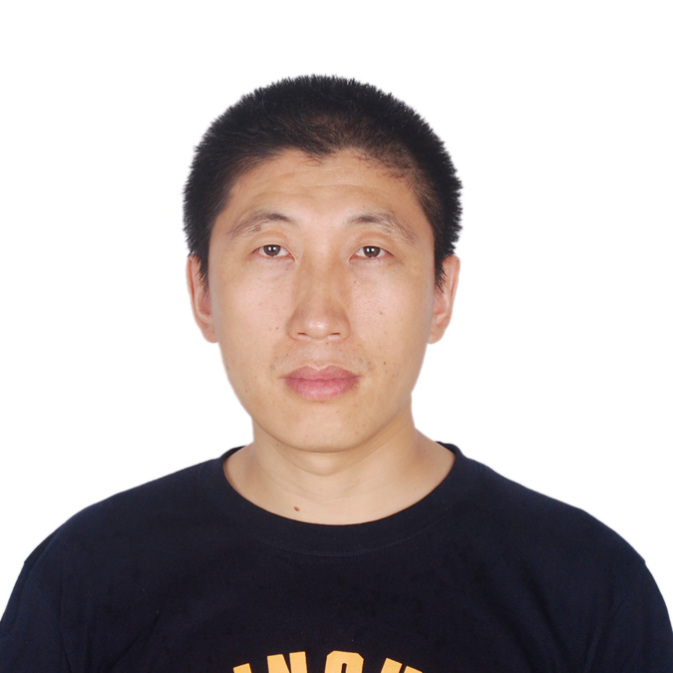

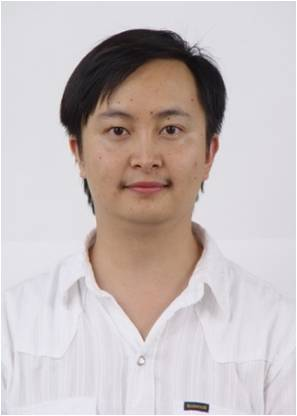






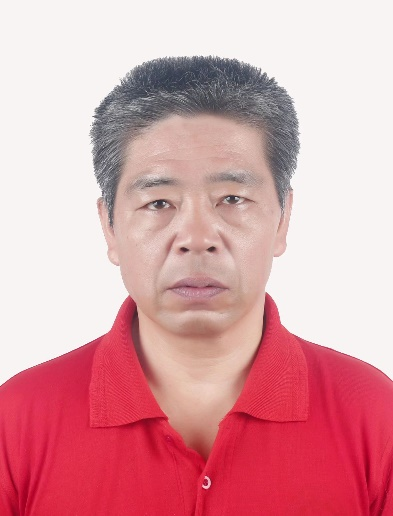










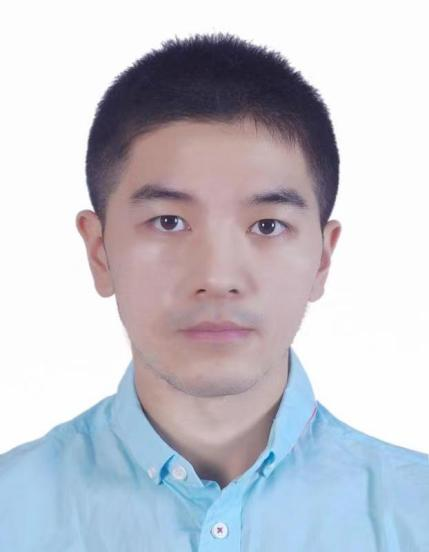



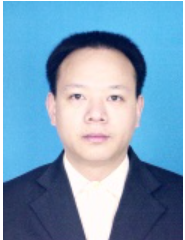






.png)